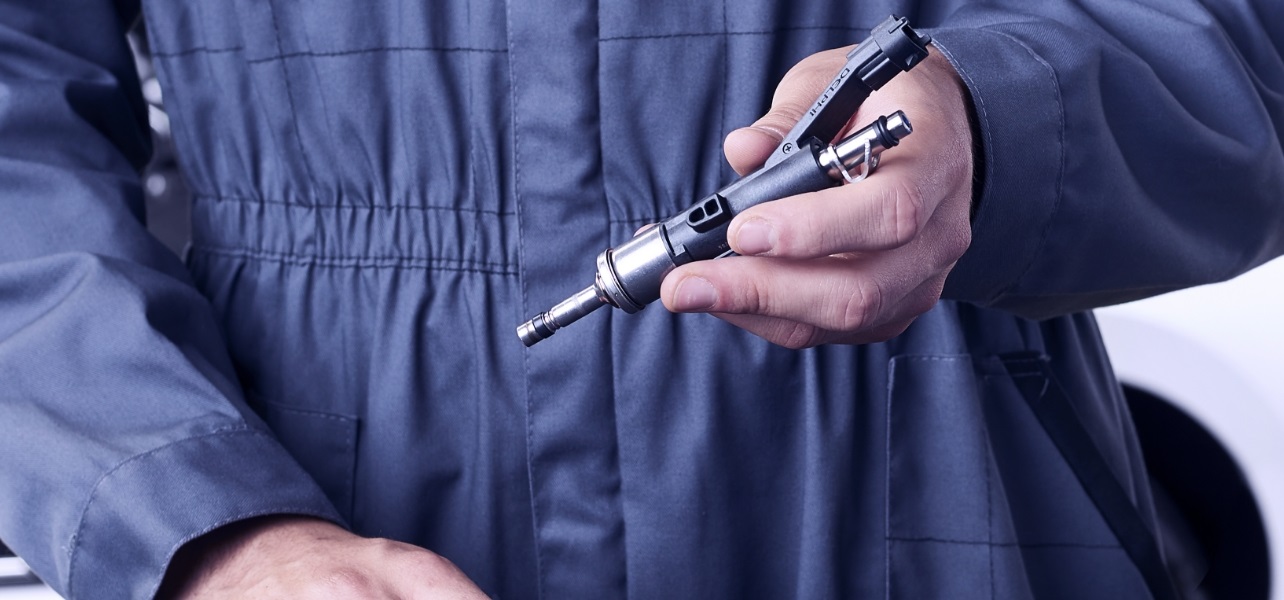Resource Highlights
In this article, you will find some top winter servicing advice on key maintenance products from Delphi you can be prepared to repair...for all seasons.

Winter service and repair is a prime opportunity for garages to increase their productivity. After all automotive failures occur all year round. Add to this accident damage from slippery, icy roads, increased wear from potholes and the corrosion that comes with salt, grit etc and you’ve got the perfect ingredients for a busy winter season. But are you ready to take advantage of the colder months? With some top winter servicing advice on key maintenance products from Delphi you can be prepared to repair...for all seasons.
Steering and Suspension: A vehicles steering system can often bear the brunt of wintery conditions. Potholes, caused by extreme temperature changes, and the use of corrosive materials such as salt and grit on the road’s surface, can all contribute to greater wear and tear of a vehicle’s steering and suspension system.
Key components such as the lower ball joint are particularly vulnerable to contamination from salt and increased road stress given their position. Whilst ball joint replacement is not part of the routine maintenance schedule, they should be regularly inspected for any signs of damage, wear and/or excessive movement. If any of these are present the entire ball joint, not just the boot, should be replaced.
Braking: Braking accessories are also susceptible to increased wear during winter and, as per the rest of the year, should be fitted as new with every job. Whilst used components may appear to be in good condition, exposure to extreme temperature, moisture and salt corrosion will further reduce both their tension and function. Using old components can lead to unequal braking, causing a possible reduction in stability and safety, as well as increased pad and disc wear.
Similarly, dirt, salt and colder weather can all take their toll on the caliper’s piston boot which is prone to cracking or hardening. If this is not dealt with, moisture can get into the caliper, causing the slider pins to rust and eventually seize. This can result in any number of problems including brake drag, brake overheat, brake fade and hot spots on the brake discs. Ongoing maintenance is therefore critical and should be included as part of any routine brake service, especially when replacing the brake pads.
Finally when replacing a customer’s discs, it’s worth considering installing fully coated discs. Delphi’s coated disc technology is quick and easy to fit, while also being aesthetically pleasing. Thanks to its special zinc-flake, geomet coating, Delphi coated discs offer added corrosion protection from salt, grit etc. Perfect for testing winter conditions.
Air Conditioning: Think AC…and you naturally think of warmer, summer months. However, that’s not strictly true - AC servicing, is in fact, an all year round opportunity. Take the compressor for example; failure can occur anytime, and as the compressor is the heart of the AC system, the vehicle cannot run without it.
Likewise, there’s no set timing when it comes to servicing routine maintenance items. The receiver drier, for example, should be checked and changed regularly - every two to three years and each time the system is opened, to prevent it from becoming saturated from humidity in the air. The same goes for the cabin filter. It should be replaced at least every 12 months, sooner if driving in urban conditions, as a blocked cabin filter will result in a below-par heating and cooling system and cause the windows to mist up more rapidly.
One winter essential, however, is the heater core. Responsible for heating and demisting the cabin, it and is one of the primary thermal repair opportunities in the colder months. The heater core can fail as a result of leaks or clogs that occur if the coolant is not checked and/or changed regularly. Replacing the engine’s coolant against extreme temperatures (diluted with 50 percent water) helps to prevent this, and provides great protection for the cold weather, saving customers money in the long run. Technicians should also conduct a radiator pressure test, and examine the hoses for cracks or bulges. In most cases, this can be conducted without having to remove the components from the vehicle.
Besides general part failures and maintenance opportunities, wintery road conditions typically result in more accidents and in turn, more crash repair work on front-end components such as radiators and condensers.
Other Key Components: In sub-zero temperatures, a vehicle’s battery will lose voltage, or electromotive force, meaning it will have a harder time getting started. Older batteries may not start at all. In both cases they will need to be replaced. Additionally, you may wish to consider a pre-winter battery testing service, if you’re not already doing so – it’s another quick, easy and potentially profitable service opportunity.
The fuel management system is a prime area for winter contamination. Salt, grit and water can enter the fuel lines which can lead to fuel pump and injector contamination, as well as corroded fuel lines.
The mainstay of winter servicing, glow plugs are critical in helping vehicles start in freezing temperatures. As such they are one of the primary causes of starting issues during winter and represent a great service opportunity. Technicians should test their customer’s glow plugs or even replace them if they are a few years old – just one faulty glow plug could prevent a vehicle from starting. Even if they are still functioning, there could be problems which may lead to premature failure, which you can help fix.
Sensors are also exposed to the harsh elements of winter, and as an integral part of the engine management system, it’s important to keep them operating in peak condition.
SIGN UP TO FIND MORE
Fill up your details to hear more from our experts and get the latest updates from Delphi.



